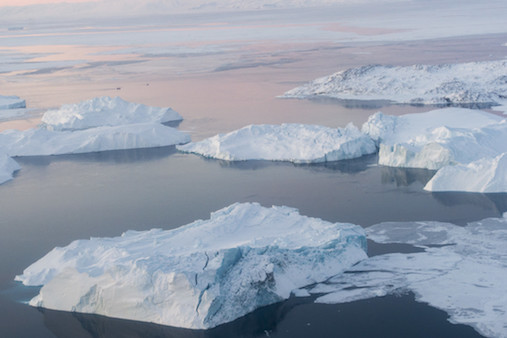Reuters photographer Jorge Silva was attacked and arrested by United Nations security and Mexican federal police when covering a protest of environmentalists at the United Nations Climate CHange Conference, COP-16, in Cancun, Mexico, reported El Diario de Yucatán and El Universal.
The tragedy that trapped 33 miners and their emotional rescue – followed by nearly one billion people worldwide– continues to draw coverage, even as the miners and their families stay away from the press, Reuters reports.
Ana L. Urbina, a correspondent for channels 8 and 11, and five members of the Red Cross died when the ambulance and truck they were traveling in was swept away by the rain-swollen Tecolostote River in central Nicaragua, Boaco Department, El Nuevo Diario reports. (See EFE's report in English.)
Mary Cuddehe, a U.S. journalist, was offered $20,000 to spy on plaintiffs in one of the biggest environmental lawsuits in Ecuador's history, Cuddehe revealed in a first-person account published in the Atlantic.
The Inter American Press Association is kicking off a workshop about how to diminish journalists' risks with the debut of a documentary commemorating the assassination of journalist Francisco Ortiz Franco in Tijuana, Mexico, on June 22, 2004, according to the newspaper El Universal.
Journalists who cover environmental degradation are increasingly subject to threats and attacks, according to a new Reporters without Borders investigative report, “High-Risk Subjects: Deforestation and Pollution” (PDF file). Its publication is timed to coincide with World Environment Day (June 5).
Guatedigital brought the news that Aníbal Archila, a reporter for Noti7 TV, was declared missing Thursday night (May 27) after being hit and injured by volcanic debris while covering the eruption south of Guatemala City, EFE says. His body was later discovered, and his shaken colleagues announced Archila's death live on the air. (See these videos on the CNN and LA Observed sites.)
In a visit to the city of Sinop, one of the largest logging centers in Mato Grosso state, journalist Andreia Fanzeres asked a resident if she liked living in Amazonia. Her response was disturbing. “I only see Amazonia on television.” The journalist's discovery of the gap between the media's reporting and the knowledge of the local population about deforestation led her to move from Rio de Janeiro to Juína, in northern Mato Grosso, to research the topic.
In a visit to the city of Sinop, one of the largest logging centers in Mato Grosso state, journalist Andreia Fanzeres asked a resident if she liked living in Amazonia. Her response was disturbing. “I only see Amazonia on television.” The journalist's discovery of the gap between the media's reporting and the knowledge of the local population about deforestation led her to move from Rio de Janeiro to Juína, in northern Mato Grosso, to research the topic.

“Our own global warming ‘phony war’ is over. The hot war is here,” said veteran U.S. journalist Bill Moyers at a conference in April, when he compared the importance and urgency of journalistic coverage about the climate crisis to coverage of WWII

Of the new outlets that have launched in Brazil in recent years, Projeto #Colabora stands out as having formed a network of 260 journalists spread across the four corners of the country.

A group of Latin American journalists is investigating another topic of great urgency in Latin America that has not dissipated with the current pandemic: violence against environmental leaders on the continent.